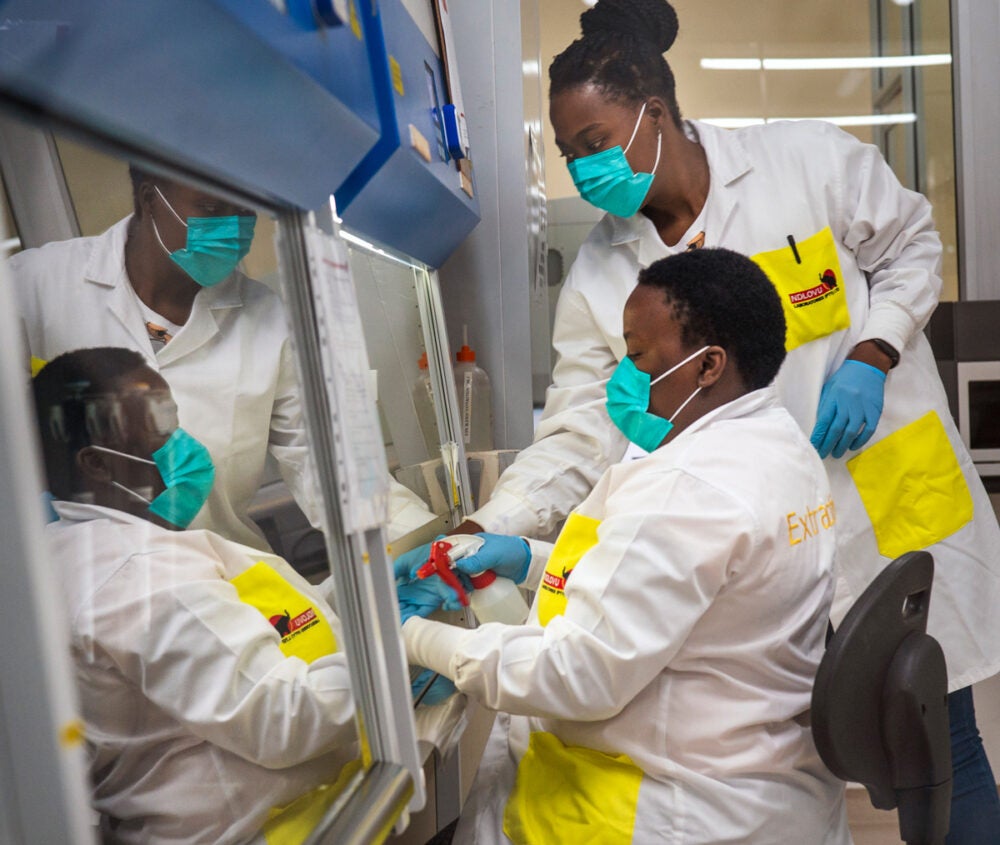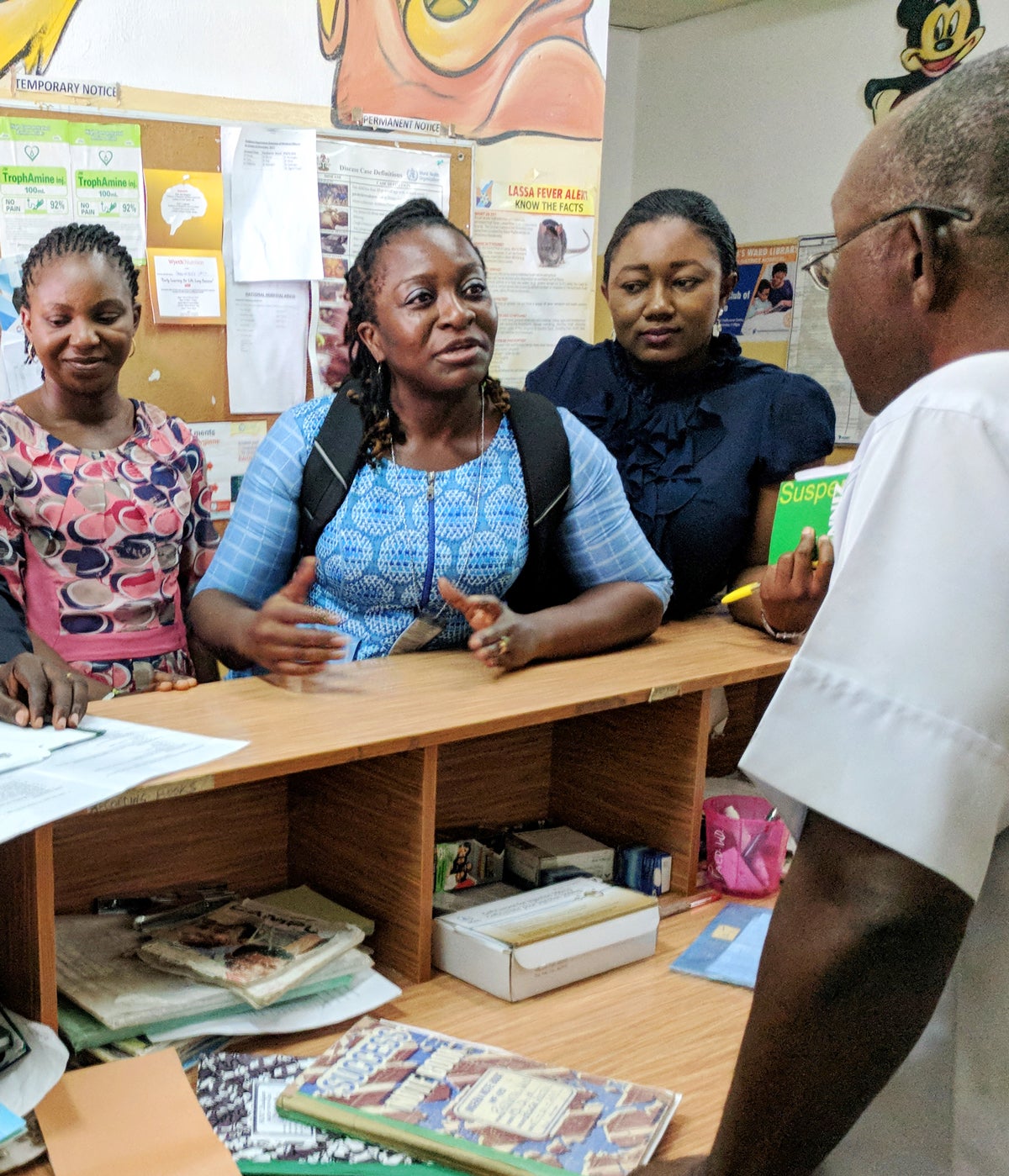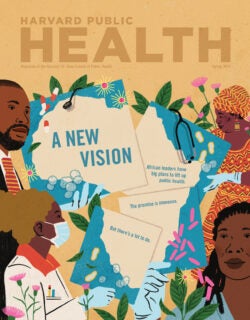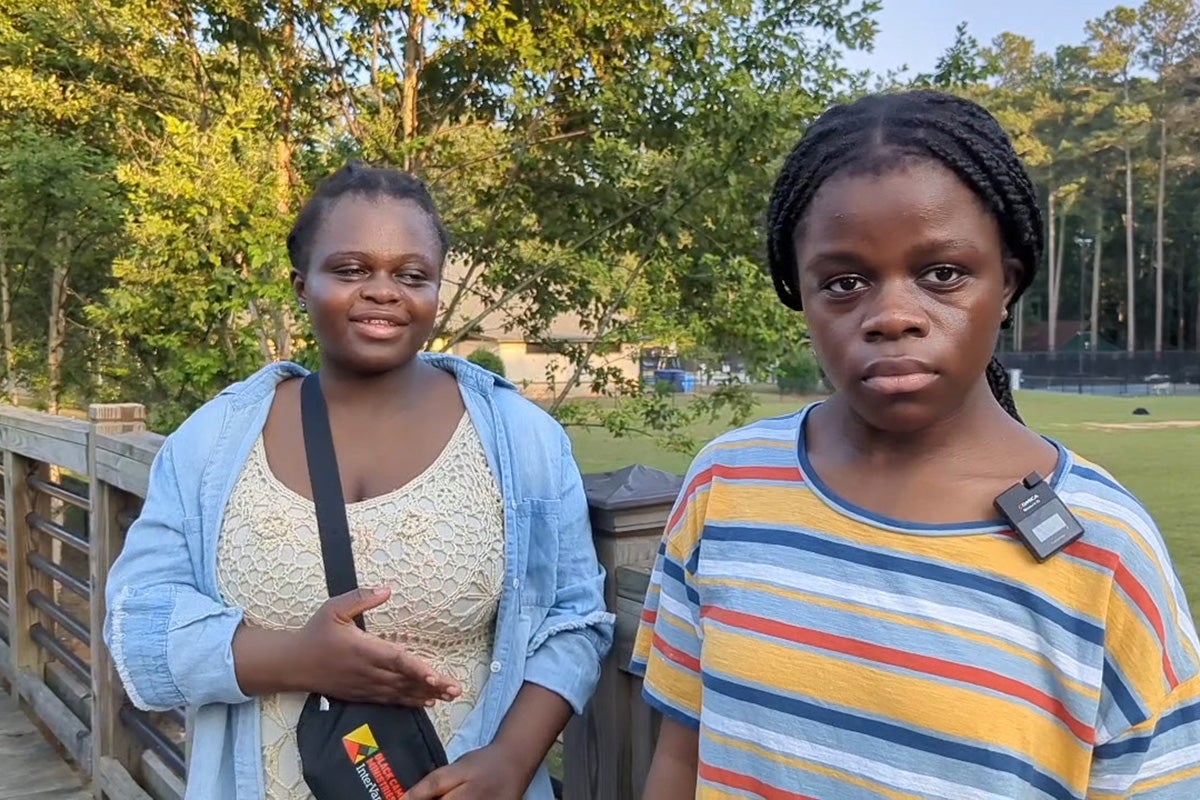
Research
How COVID-19 changed African R&D
Several months into the pandemic, Nadia Sam-Agudu received surprising data about children hospitalized with COVID-19 in the Democratic Republic of the Congo: They were much more likely to die than their peers in North America and Europe.
Sam-Agudu, an infectious disease pediatrician in Nigeria, was immediately interested in learning more. “The numbers were small,” she recalls. But the data—some of the first to come out of an African country on COVID mortality rates—had children dying at a rate second only to those aged 60 and above. That “didn’t gel” with data from elsewhere that COVID mostly harmed older people, says Sam-Agudu, who is affiliated with both the University of Maryland School of Medicine Institute of Human Virology and Nigeria’s Institute of Human Virology. So, 18 months ago, she added COVID to her portfolio.
Sam-Agudu and her colleagues quickly set up a multisite follow-up study of pediatric outcomes of COVID, working through AFREhealth, a Pan-African health research training consortium. Their findings, published in February 2022 in JAMA Pediatrics, showed that 8.3 percent of African children hospitalized with COVID died, compared to 1 percent or less in North America or Europe. This suggests children should be a priority group for studying vaccination and treatments, the authors say. The study did not explore the reason for the discrepancy, but theorized the culprit is a lack of quality intensive care.
Sign up for Harvard Public Health
Delivered to your inbox weekly.
That the pediatric mortality study was designed and carried out by Africa-based researchers is a shift—health scientists in Africa usually work in close partnership with, if not under the direction of, non-African colleagues. It’s part of a clear trend that has emerged during the pandemic of African researchers taking leadership roles in important COVID-related research.
In fact, a Kenyan study noted that 78.5 percent of COVID-related research about Africa listed an African first author, and 63.5 percent an African last author—positions that indicate study leadership. Pre-pandemic, African first authors featured on less than half of infectious disease papers about Africa, and African last authors on 41.3 percent. The Kenyan study surmised that the urgent need to understand the pandemic, combined with dedicated funding and time, created the spike.

Sam-Agudu, who is originally from Ghana, suspects travel restrictions and the global health emergency led to fewer researchers from high-income countries working in Africa—a vacuum filled by African scientists who found unparalleled “creative freedom” to lead their own studies during COVID. “These factors perhaps serendipitously contributed to African researchers asserting more local leadership,” she says.
African researchers, like their counterparts globally, were able to use resources and networks established to tackle diseases like malaria, HIV, and Ebola to combat the new threat. The need to track the virus around the world sparked a wave of investment in Africa’s molecular biology capacity, both to be able to test for the virus and to be able to sequence its genome to track its evolution and spread. African scientists were the first to identify the Beta and Omicron variants of the coronavirus.
Such investments should continue to benefit African health care and research beyond this pandemic, according to top health officers like Nicksy Gumede-Moeletsi, a virologist working for the World Health Organization Regional Office for Africa. “Routine genetic surveillance should be a part of health systems in Africa,” he said in September 2021, when a WHO-backed surveillance network showed that COVID sequencing in Southern Africa quadrupled from 5,510 samples in the first half of 2021 to more than 24,000 by the end of September.
Another boon of the pandemic is a huge influx of support for African biotechnology, in particular vaccine manufacturing, in response to the problems the continent had securing COVID vaccine supply and other medical equipment. “The amount of funding into biotech capacity in the last year in South Africa has been more than in the previous 10 years combined,” says Petro Terblanche, managing director of Afrigen, a South African biologics and vaccines company. And it’s not just South Africa that has benefited, she says, pointing to 11 technology transfer initiatives that are bringing vaccine technologies to Africa.
The pandemic has also improved access to financing for technical health investments in developing countries, says Sarah Sceery from Build Health International, a Massachusetts-based nonprofit that develops health care infrastructure in Africa, Latin America, and the Caribbean. The organization is currently restoring 30 nonfunctional oxygen production plants, most of them in Africa, to supply medical oxygen that was lacking at the start of the pandemic. Boosting medical infrastructure budgets is “critical,” Sceery says.
Will Africa’s COVID investment bonanza last? Terblanche says African biotechnology companies will need to think carefully about how they invest their windfall. “It’s in the time when it rains well that you have to save the water,” she says.
There are concerns that even if African scientists stay at the leading edge of COVID research, most of the funding is still coming from abroad. Of the top 15 funders of the research tracked in the Kenyan study, only three are African, notes Fredros Okumu, director of science at Tanzania’s Ifakara Health Institute. All are from South Africa. “This is a major concern and will be one of the most important drivers of whether the pattern continues,” says Okumu.
Sam-Agudu agrees. There are signs that high-income countries are losing interest in the pandemic, she says, which could lead to funding drying up. “That’s what worries me about the Global North declaring the pandemic over,” she says. Worst case, Africa becomes the world’s “COVID lab,” with foreign scientists coming because the burden remains high, much like what has happened with HIV and malaria. They may then crowd out the African scientists who emerged as such strong leaders during the COVID crisis. “If it becomes endemic here, and everyone comes to help us with public disease control, then nothing will change,” says Sam-Agudu.
Top photo: Medical scientists Melva Mlambo (standing) and Puseletso Lesofi prepare to sequence COVID-19 Omicron samples at Ndlovu Research Center in South Africa in December 2021. Photo: Jerome Delay / AP Photo
Linda Nordling is a science journalist based in Cape Town, South Africa.



